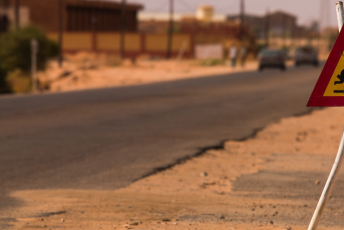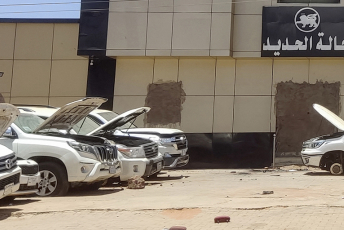Trade in counterfeit and contraband goods remains a major problem for Kenya, despite a decade of unprecedented legal and institutional efforts to control it. COVID-19 has intensified the spotlight on the trade in health products such as counterfeit and substandard sanitisers and detergents being seized by Kenya’s Multi-Agency Team on Illicit Trade.
Findings of the first ever national baseline survey on illicit trade show that production and trade in counterfeits currently cost the country over US$900 million annually in tax revenue. Conducted between October 2019 and February 2020 by Kenya’s Anti-Counterfeit Authority (ACA), the study showed that apart from about 7 500 job losses, the government lost about US$950 million in revenue in 2018.
Relevant stakeholders concur that the country still needs to do more to control and prevent counterfeit and other forms of illicit trade.
Researcher Paul Lutta argues in a study that ‘institutions combating counterfeiting are not doing enough to protect Kenyans.’ He says Kenya remains vulnerable to counterfeits mainly because it has long porous borders with Somalia, Uganda and Tanzania (across Lake Victoria), which reduce the ability to detect counterfeit smugglers. This study reflects on an International Chamber of Commerce report by Frontier Economics on the economic impacts of counterfeiting and piracy.
ACA executive director Elema Halake told ENACT there were five main reasons that the government hadn’t been able to be more effective against counterfeiting after over a decade of groundbreaking interventions.
First, Kenya is a regional hub for trade and its ports are a gateway for international trade for neighbouring countries such as Rwanda, South Sudan, Uganda and the eastern Democratic Republic of the Congo. These countries rely heavily on the Port of Mombasa for importing goods.
‘The fight [against counterfeit goods] can’t be confined to Kenya. There is a need for coordination with neighbouring countries,’ he says. Apart from Tanzania, which has established a Fair Competition Authority to fight counterfeiting and other forms of illicit trade, measures by other countries in the region are yet to attain the same level as Kenya in the fight against counterfeiting, he says.
Corruption is the second reason for Kenya’s limited response. Criminal networks smuggle counterfeit goods into Kenya by bribing government officials, particularly at border points. Corruption is exacerbated by inadequate legal enforcement mechanisms and consumer ignorance. Factors such as low purchasing power due to high poverty levels and a rapidly growing middle class also make Kenya attractive to counterfeits.
Third, there’s a lack of adequate information on the level and magnitude of the problem in Kenya. Based on this year’s national baseline study, future studies should provide annual statistics to guide law enforcement teams and other government agencies in deterring counterfeiting and other forms of illicit trade.
According to Halake, a new national illicit trade observatory has been set to help solve the inadequacy of information through regular monitoring and the provision of data for research and dissemination. The observatory is designed to enable enforcement agencies to report seized goods by tracking smuggled, counterfeited, pirated and substandard goods.
Philda Maiga, a former national trade adviser to Kenya, says this will complement and enhance the efforts of the Multi-Agency Team on Illicit Trade, which was established by presidential directive in 2018 to institutionalise an inter-agency approach and facilitate policy and operational coordination.
Halake says the observatory will help coordinate anonymous information gathering from the private sector. Reluctance by individuals and companies to provide information is the fourth issue behind Kenya’s failure to achieve greater success in its fight against counterfeiting. This reluctance emanates from fear of repercussions against individuals and businesses if they are associated with exposing powerful people involved in crime.
The observatory will enable the private sector to anonymously report on counterfeited products affecting their market share as well as their impact on consumers without fearing personal or corporate harm.
The fifth issue relates to the private sector, which has supported Kenya’s fight against counterfeiting, led by the Kenya Association of Manufacturers and the Kenya Private Sector Alliance. But Halake says manufacturers, especially of international brands, are part of the problem as they don’t fully support law enforcement.
Due to low volumes traded in relatively small economies like Kenya, it doesn’t make financial sense for manufacturers of international brands to support law enforcement efforts. For example cellphones are the most counterfeited commodity in Kenya, which is one of Africa’s top cellphone markets. But manufacturers don’t pursue court cases involving the counterfeiting of their brands.
Surveys by Dublin-based digital technology research firm StatCounter show that ‘unknown’ handsets make up over 24% of the Kenyan market, selling better than major brands such as Nokia and Samsung which were favourites on the market about a decade ago.
Globally, Business Action to Stop Counterfeiting and Piracy estimates that apart from health and safety risks to consumers worldwide, counterfeiting and piracy could drain US$4.2 trillion from the global economy and put 5.4 million legitimate jobs at risk by 2022.
Kenya’s national action plan covering this period contains approaches to deal with problems including weak regulatory regimes, uncoordinated enforcement mechanisms, limited agency resources, low catch-up with technological advancements, low consumer awareness, inadequate screening of cargo and long unmanned borders.
Kenya Association of Manufacturers CEO Phyllis Wakiaga urges the government ‘to continue in efforts to secure the sector from illicit trade.’ She says the impact of counterfeiting on the economy could be reduced with tighter border controls, enhanced market surveillance and enforcement in border towns where contraband products are sold freely, and public awareness on counterfeiting dangers.
These approaches are expected to intensify collaboration with organisations such as the World Customs Organization. Kenya is on the verge of signing the international Declaration of Intent to Prevent the Maritime Transport of Counterfeit Goods. This will help address concerns that vessels transporting legitimate products are exploited by criminal networks to transport fake versions.
However, pursuing and deterring criminal networks will require the cooperation of neighbouring countries, which should review national laws and regulations to ensure uniformity to combat counterfeiting and strengthen the regional policy environment.
Also, support from international brand manufacturers in prosecuting court cases would probably be more forthcoming through the East African Community regional bloc, which combines seven economies. This would be possible if the countries approached the issue through their regional bloc rather than tackling it as individual states.
Deo Gumba, ENACT Regional Organised Crime Observatory Coordinator – East and Horn of Africa, ISS







